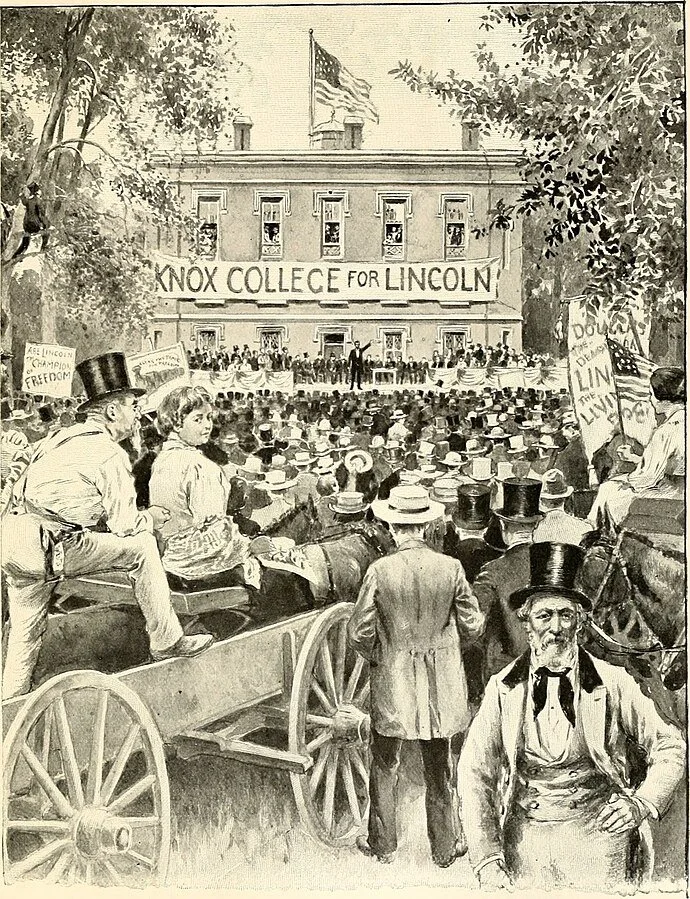Lincoln, Douglas, and the Debates That Shaped America’s Future
By: Harry Bulkeley
There was a moment when Forgottonia was not forgotten. In fact, it was the center of the country's attention. News outlets from all over sent reporters to file daily reports about what was going on right here in western Illinois. It was the fall of 1858, and Senator Stephen A. Douglas was debating his opponent in the senate race, a Springfield lawyer named Abraham Lincoln.
Douglas was the incumbent and had agreed to debate his challenger in all seven of Illinois' Congressional districts, three of which were in and around Forgottonia-Galesburg, Quincy, and Alton. Galesburg was an interesting choice because it had been founded by abolitionists and would provide a crowd, many of whom would be for the gangly rail splitter from Springfield.
People throughout the country and even abroad read accounts of the series of debates between the two men. The nation was sliding toward Civil war and the issues they were discussing captured everyone's attention. Given what passes for political "debate" these days, it's hard to express how interested people were in the serious things they were saying.
How interested? It's estimated that between ten and fifteen thousand people came to Galesburg for the fifth debate on October 7. The crowds came from miles around to stand outside for three hours on a windy, rainy day to hear the men duke it out. A train from Peoria had so many passengers that when it reached a hill, the people had to get off the train and walk alongside until the engine could make it over the top. Supporters would cheer for their side and boo the other.
These debates weren't filled with the ten-second sound bites that so often pass for wisdom in modern politics. The first speaker spoke for an hour. The second would respond for ninety minutes with a thirty-minute rebuttal.
There were some things that are familiar to modern politics. Douglas accused Lincoln of being a radical and Lincoln cried fake news accusing the Springfield Democratic paper of forging documents it published.
The two men stood on the east side of Old Main at Knox College, debating the future of slavery. The West was expanding, and Congress was debating whether the new states would be slave, free, or a mixture. It was so bad that the Kansas territory was known as Bleeding Kansas because of all the killing that was going on. Douglas thought the new states should decide if they would allow slavery. Lincoln disagreed and in Galesburg raised the moral issue of slavery, saying of Douglas "He is blowing out the moral lights around us, when he contends that whoever wants slaves has a right to hold them." It's hard to imagine today but in 1858 not everyone regarded slavery as a moral evil. Across Forgottonia, there were small islands of abolitionists amongst a sea of folks who didn't really care much.
The debates were followed all over the country. Within three years, we would be consumed with the deadliest war in American history. The short term result was that Douglas won the election for Senate. In those days, the legislature chose the senators from each state and the Democrats controlled Illinois. But Lincoln went from being a small-town backwoods lawyer to a national figure over the summer and fall. He was asked to speak across the country and two years later would be elected president.
What was said during the debates played an important role in the Southern states' secession. The country had been straining at the seams during the 1850s and reports of what Lincoln had said made the South believe it could no longer be a part of the United States.
The phrase "the whole world is watching" is overused these days but in 1858 the world was watching and the place their eyes were focused on was our very own Forgottonia.

